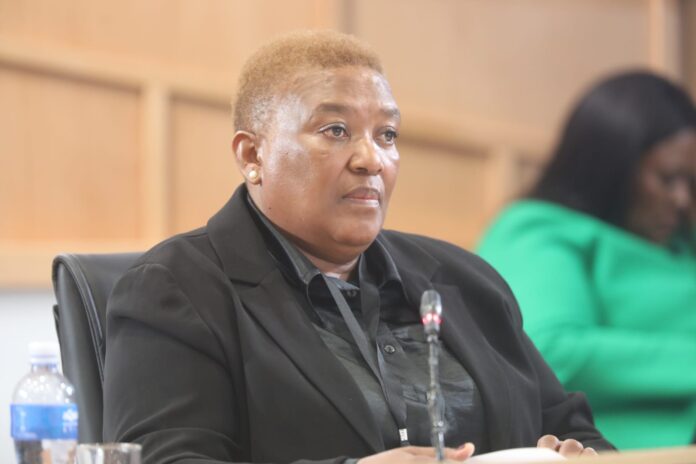A senior South African Police Service (SAPS) national official has conceded that the infamous 121 case dockets of the KwaZulu-Natal political killings task team were “gathering dust” and had no substantive investigative work done on them after being taken from KwaZulu-Natal to the SAPS head office in Pretoria.
Maj-Gen Mary Motsepe, the SAPS component head for serious and violent crime investigation, made this concession after initially telling the Judicial Commission of Inquiry into Criminality, Political Interference, and Corruption in the Criminal Justice System that the dockets were not “gathering dust”.
Motsepe was the new witness to take the stand on Monday at the commission sitting at the Brigitte Mabandla Justice College in Pretoria.
She is testifying about the March 2025 process wherein the 121 dockets were taken to the Pretoria office of Lt-Gen Shadrack Sibiya, the suspended deputy national commissioner of police responsible for crime detection.
Audit report
In her testimony, Motsepe claimed to have compiled an audit report on the dockets upon their arrival in Sibiya’s office in March.
In her report, Motsepe expressed her disagreement with the statements made by KwaZulu-Natal police commissioner Lt-Gen Nhlanhla Mkhwanazi during his July 6 media briefing, which claimed that the dockets were “gathering dust” in Sibiya’s office.
“During the media briefing of July 6, General Mkhwanazi said five dockets had warrants of arrest, and the 121 dockets at General Sibiya’s office were gathering dust. That is not true,” Motsepe said.
“The dockets came in March and were with us for three months. We inspected them, so they weren’t gathering dust,” according to Motsepe’s report.
The chairperson of the commission, retired Constitutional Court Justice Mbuyiseli Madlanga, then asked Motsepe if any substantive criminal investigations were done on the 121 dockets when they were at Sibiya’s office.
Arrest warrants
“Apart from the inspections done on the dockets, my understanding of General Mkhwanazi’s statement is that the dockets were gathering dust because there were no substantive criminal investigations on them. Therefore, they were gathering dust. Would you agree?” asked Madlanga.
Motsepe responded: “I would accept that [the dockets were gathering dust].”
In addition, Motsepe said Mkhwanazi was incorrect to state that five of the 121 dockets had effective arrest warrants before they were taken to Sibiya’s office.
The five dockets in question, she said, had arrest warrants that were not signed off by the state prosecutor nor the magistrate.
She said the arrest warrants lacked full authorisation and signatures; thus, no arrests were made.
The commission’s evidence leader, Advocate Thabang Pooe, leads Motsepe’s testimony. The commission continues.



